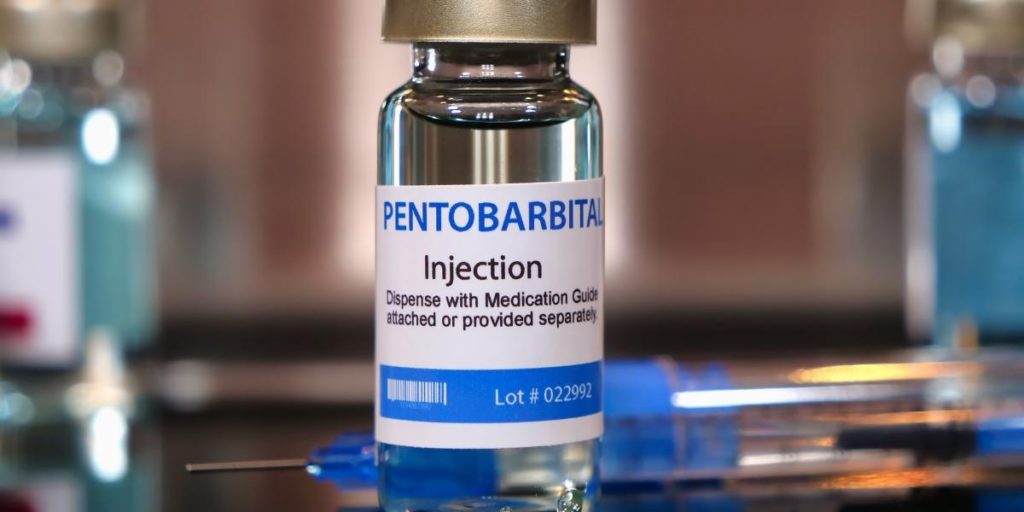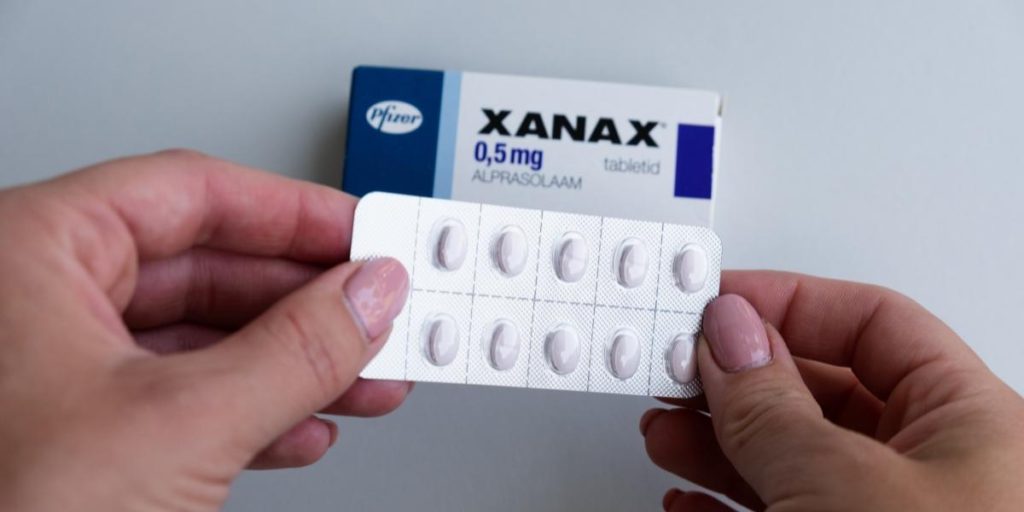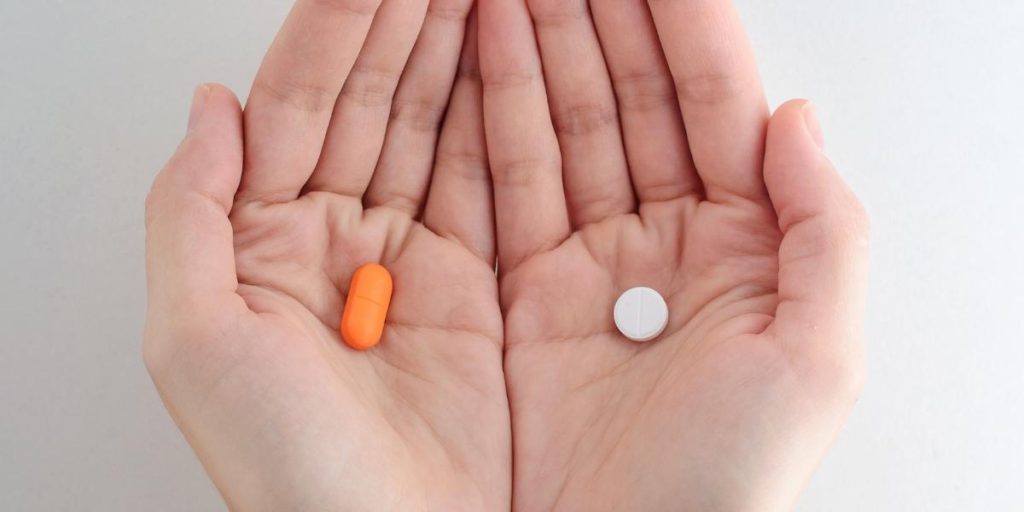Barbiturates vs. Benzodiazepines: The Difference Explained

Barbiturates and benzodiazepines are both prescription medications that share many similarities, which confuses people about their differences. From chemical structure to side effects, let’s explore these drugs and how to keep you or your loved ones safe.
The difference between barbiturates and benzodiazepines can be the difference between life and death. Barbs and benzos, the respective slang names for the two medicines, are often dismissed as the types of drugs only drug addicts and people with mental health problems use.
Barbiturates were once the most popular drug worldwide, used to treat everything from mental health problems to knocking patients out during field surgeries in war. As medical practices and science evolved and caught up, they realized that barbs were not an all-purpose drug and were highly addictive.
Almost half a century later, benzodiazepines came along as an equally effective, slightly less addictive alternative to barbiturates.
What Are Barbiturates?
Barbiturates, sometimes called barbs, are sedative-hypnotic drugs that work throughout the central nervous system. They were initially developed to treat anxiety, panic attacks, insomnia, seizures, and schizophrenia.
Barbs can be short-acting or long-acting. As central nervous system depressants, barbs produce excessive sedation, muscle relaxation, and reduced heart rate and breathing. They have been used since the early 1900s and peaked in popularity in the 1960s and 70s for medical and illicit users.
And as their popularity grew, so did barbiturate addiction and overdoses, prompting the government and medical professionals to look for safer, less addictive medical alternatives. That alternative is benzodiazepines.
Barbiturates are still prescribed for severe migraine disorders, epilepsy, surgical procedures, and euthanasia, primarily in controlled clinical settings. However, they are highly addictive and have a long list of adverse effects and life-threatening withdrawal symptoms.
Barbiturate Examples
Although not as prolific as they used to be, many prescriptions for barbiturates are still written every year.
The most common types of barbiturates are:
- Phenobarbital (Luminal)
- Pentobarbital (Nembutal)
- Secobarbital (Seconal Sodium)
- Mephobarbital (Mebaral)
- Amobarbital (Amytal Sodium)
- Butabarbital (Butisol Sodium)

What Are Benzodiazepines?
Benzodiazepines often called benzos, are a newer class of sedative-hypnotic drugs and central nervous system depressants. They are so effective that they quickly became one of the most legally and illegally used prescription drugs.
Benzos can be short-acting or long-acting, producing sedation, muscle relaxation, and feelings of calm. Doctors prescribe benzodiazepines to treat anxiety and panic disorders, muscle spasms, seizure disorders, sleep disorders, and alcohol withdrawal symptoms.
Scientists discovered benzodiazepines in the 1950s and realized they were similar to barbiturates but easier to manage and safer. And while benzodiazepines are safer than barbiturates for various reasons, they are still highly addictive and require caution and closely following directions. Benzodiazepines have fewer adverse effects than barbiturates but also have life-threatening withdrawal symptoms.
Benzodiazepine Examples
Benzodiazepines are some of the most widely prescribed and abused medications globally.
Some of the most well-known benzodiazepines include:
- Diazepam (Valium)
- Alprazolam (Xanax)
- Lorazepam (Ativan)
- Clonazepam (Klonopin)
- Flurazepam (Dalmane)
- Temazepan (Restoril)

What’s the Difference Between Barbiturates and Benzodiazepines?
The main difference is barbiturates are more potent and less safe than benzodiazepines. The other two critical differences between barbiturates and benzodiazepines are how they work in the brain and their side effects.
Barbiturates are more addictive and lethal than benzodiazepines.
While both barbs and benzos are very addictive, barbiturates’ intense effects and extreme sedation cause addiction faster and more intensely than benzodiazepines.
For barbiturates, the difference between a therapeutic dose for desired results and the required dosage to overdose is ten times. For benzodiazepines, an overdose requires a hundred times the amount of its therapeutic dose.
Benzodiazepines are less volatile than barbiturates.
Volatility refers to how medications interact with other substances and drugs. Barbiturates interact negatively with many substances and ingredients, including birth control and allergy medications.
You should avoid mixing prescription drugs with alcohol and illicit drugs. Still, benzodiazepines have fewer possible interactions and side effects than barbiturates, especially with non-narcotic and over-the-counter medicines.
How Do Barbiturates and Benzodiazepines Work?
Although barbiturates and benzodiazepines both produce central nervous system depression and similar effects, the way they do it differs.
Medications that interact with the central nervous system bind to and interact with gamma-aminobutyric acid (GABA) receptors. GABA is responsible for messages between the brain, cells, and nerve endings. The different ways that barbiturates and benzodiazepines interact with GABA receptors and the brain are why they produce side effects that differ from each other.
Barbiturates bind to more GABA receptors than benzodiazepines, causing these brain receptors to become less responsive, producing fewer nerve impulses and strongly affecting the entire body.
Benzodiazepines are “relatively selective drugs” that target and bind to more specific GABA receptors. They don’t affect the production of nerve impulses like barbiturates; instead, they cause the brain to be less receptive to them. Because of this, benzodiazepines produce a sedative effect similar to barbiturates but with more precise and less potent effects.
The ability of doctors and chemists to make benzodiazepines more effective for specific purposes and less lethal was the catalyst for barbiturates falling out of favor and declining use.

What Are the Side Effects of These Medications?
Barbiturates and benzodiazepines have similar uses and intended effects, but their side effects are not the same because they have different chemical structures that interact with the body differently.
Barbiturate Side Effects
Barbiturate side effects include:
- Lasting drowsiness
- Headache
- Dizziness
- Loss of coordination
- Slurred speech
- Abdominal pain
- Vomiting
Benzodiazepine Side Effects
Benzodiazepine side effects include:
- Lightheadedness
- Confusion
- Memory loss
- Muscle weakness
- Appetite changes
- Dry mouth
- Constipation
Despite their differences, the biggest thing that barbiturates and benzodiazepines have in common is that withdrawal from either is dangerous and requires medical care.
Medical detox is the safest way to handle withdrawal from both drugs. The most successful way to overcome addiction to sedative drugs is to follow medical detox with an evidence-based treatment plan.
Prescription Drug Addiction Treatment
Addiction to prescription drugs can feel helpless and overwhelming, but there is a path out of despair and to recovery.
At Northridge Addiction Treatment Center, your safety, well-being, comfort, and recovery matter to us. Our residential treatment program offers inpatient medical detox with 24-hour medical care and support in a private, intimate facility.
At Northridge Addiction Treatment Center, we provide a dual diagnosis program to help uncover the roots of addiction. And with the help of our medication-assisted treatment program, we manage your co-occurring physical or mental health conditions while using one-on-one evidence-based therapies and support groups to foster and empower your recovery.
Call us now to take the first steps towards overcoming addiction and reclaiming your life. Our compassionate treatment specialists are eager to help.
Find Meaningful Recovery
Our caring and compassionate specialists are eager to help you comfortably navigate this journey to recovery. Our individualized treatment plan, programs, and therapies may be a perfect match for you or your loved one. Let us assist you in living the happy life you deserve. It starts with a phone call.




